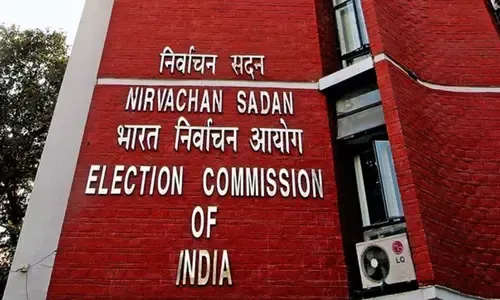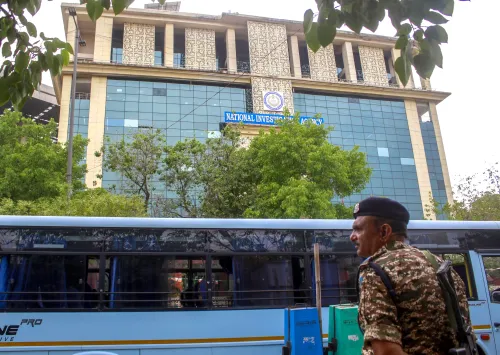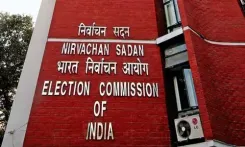Why is the Naga Body Boycotting Government Events?

Synopsis
Key Takeaways
- CoRRP is boycotting all state government events.
- The committee demands a review of the job reservation policy.
- They oppose the composition of the Job Reservation Commission.
- The current reservation policy has been in place for 48 years.
- Initial reservation was 25% for seven tribes.
Kohima, Aug 9 (NationPress) The Five Tribes Committee on Review of Reservation Policy (CoRRP), which has been in protest in Nagaland for several months, has declared its intention to boycott all state government events, including the upcoming Independence Day celebrations.
The CoRRP, representing five backward Naga tribes, rejected the state cabinet's decision made on August 7 to form a 7-member Job Reservation Commission (JRC).
A statement from the Nagaland government, dated August 6, revealed that during a cabinet meeting led by Chief Minister Neiphiu Rio, the creation of the JRC was approved. This commission is to be headed by a respected individual with administrative experience from retired senior IAS officers of the Nagaland cadre.
The commission's composition will include one representative each from the Eastern Nagaland Peoples' Organisation (ENPO), the Central Nagaland Tribes Council (CNTC), and the Tenyimi Union Nagaland (TUN), along with three official members: the administrative head of the Political and Administrative Reforms Department, the Home Commissioner, and the head of the Law and Justice Department.
In response to the Nagaland cabinet's resolution, CoRRP leaders emphasized that the JRC is merely a reiteration of the June 12 resolution from the state government that did not adequately address their core demands regarding the Backward Tribe (BT) reservation issue.
The decision to boycott was made following a lengthy closed-door meeting held in Kohima, which involved the Five-Tribes Committee and representatives from the five apex Naga tribes: Angami, Ao, Lotha, Rengma, and Sema.
Following the meeting, CoRRP convener Tesinlo Semy stated that while they recognize the government’s establishment of the JRC to review the reservation policy, they strongly oppose the commission's composition.
“The inclusion of three Civil Society Organisations (CSOs) compromises their independence and overall impartiality,” he told reporters.
He asserted that the CoRRP demands a commission formed entirely of in-service or retired government officials to ensure an impartial assessment of the reservation in governmental positions. CoRRP member secretary G.K. Zhimomi noted that they did not request the JRC; rather, it was a result of a meeting on June 3 with the state government, led by Deputy Chief Minister Yanthungo Patton.
“The commission must be independent and impartial,” he insisted.
The demand for a review of Nagaland’s job reservation policy has gained momentum after the five tribal apex bodies, under the CoRRP banner, submitted a joint memorandum to the state government recently.
The Naga body claims that the job reservation policy, which has been in effect for 48 years (since 1977), no longer mirrors the current socio-economic and educational realities of various communities in Nagaland.
To support their demands, the Naga bodies conducted two phases of agitation: the first on May 29, involving protest rallies in multiple district headquarters, and the second phase on July 9, where thousands from the five Naga tribes, dressed in traditional attire, protested outside the Civil Secretariat.
Initially, a 25% reservation was set aside for seven tribes in non-technical and non-gazetted positions for a period of ten years. These tribes were classified as ‘backward’ based on educational and economic disadvantages, as well as limited representation in state services.
Over the years, the reservation has risen to 37%, including 25% for the seven Eastern Nagaland backward tribes and 12% for four additional backward tribes in the state.









